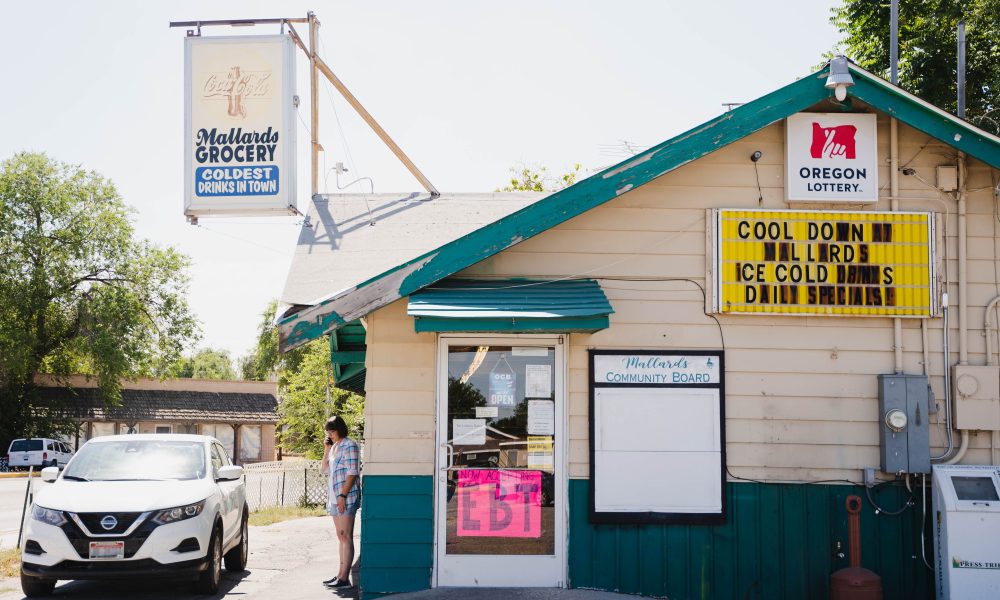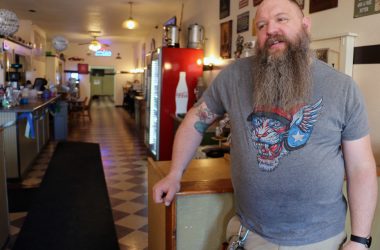ONTARIO – A door swings open and customers step into Mallard’s Grocery, bringing with them gusts of warm air, cash, the occasional collection of cans.
Cashier Venda King rings them all up, the register keys clicking: cold soda pop for dad and daughter, nightcrawlers for a fisherman from Weiser, trays of freshly fried JoJos, chicken, or burritos.
“Try to stay cool out there,” says King, a smile flashing beneath white hair. The customers make no promises, but they offer her a friendly grin or wave before they leave.
For nearly a century, the mom-and-pop shop at 797 N. Oregon St. has served customers in one of the poorest areas of Ontario – a town where the poverty rate is already the second highest in the state at 27%. That local rate is higher even than that of Malheur County, the poorest county in the state.
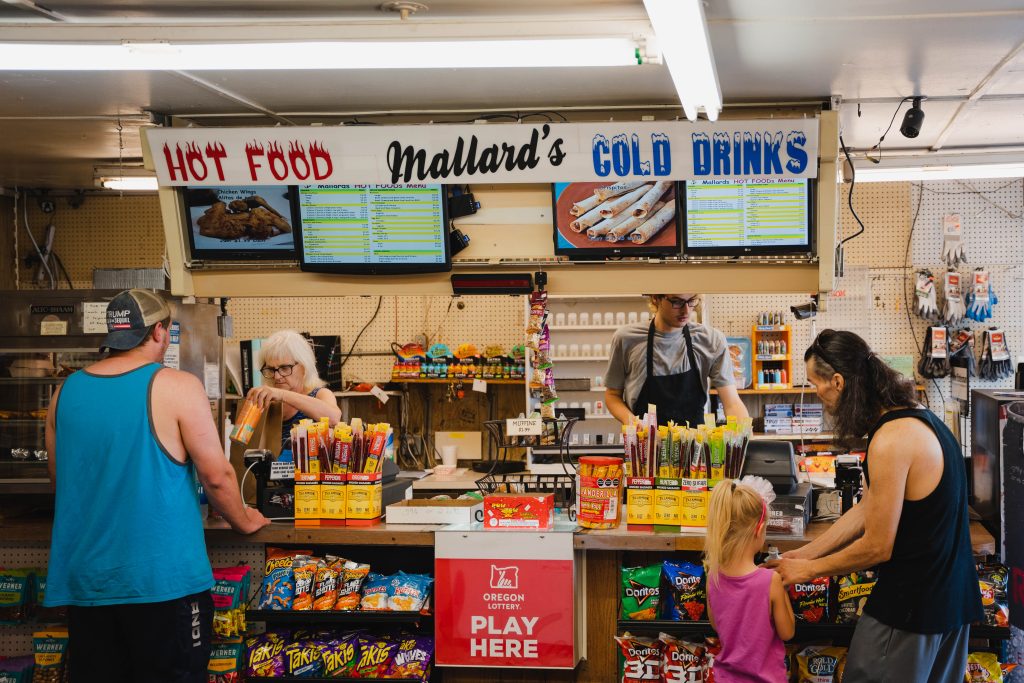
When Silver and Chris Blickfeldt decided to buy the store in April, people warned them to be careful.
“Everybody told me that this is the bad end of town,” said Silver Blickfeldt, who took over in June. “But, you know, there’s problems everywhere, and not enough to deter me or scare me or make me worry.”
Situated just off the Snake River, Mallard’s is the only grocery or convenience store serving northern Ontario – and often the only accessible market for residents of nearby neighborhoods, including a mobile home park across the street that opened in 1963. The next closest grocery is a mile south and a 20-minute walk for residents without cars.
Some regular customers pay with cans or just when they can. Blickfeldt makes a practice of donating leftover burritos, JoJos, and other hot food at the end of the night to homeless patrons or anyone in need.
The blue-collar market, open seven days a week from 7 a.m. to 8 p.m., provides a sharps container to allow community members to safely dispose of needles. It’s also the site of a clean needle exchange hosted by the Malheur County Health Department with free Narcan distribution every Wednesday.
“Sometimes you can help people and sometimes you can’t,” said Blickfeldt. “But I would hope that people know that we accept them.”
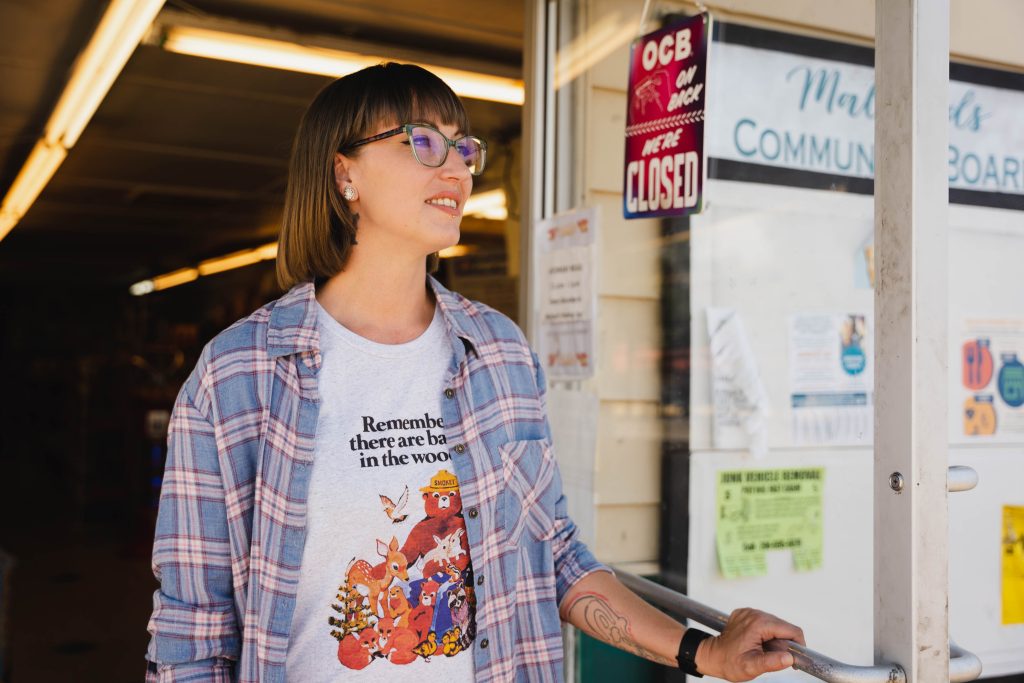
For the Blickfeldts, helping those struggling with addiction – sometimes, by just meeting people where they are – is more than just a passive responsibility.
“I’ve got 16 years clean,” said Blickfeldt. “My husband was an addict. I was an addict. And I worked really, really hard to pull my life back together.”
She knows how hopeless it can seem when you’re there – like there isn’t a way out.
“I really would hope that people came to see that there is a light there at the end of the tunnel, that this isn’t your end all be all,” said Blickfeldt. “There’s always hope, no matter how hopeless it feels.”
It may take people different paths to get out of that life, said Blickfeldt, but no path is the wrong one.
For a few years, she worked a corporate office job, doing paperwork for the government. But she struggled morally to justify the purpose of her job. She realized it would be a waste – of time, of a life – to not do something that could help people.
It’s a community-centered approach that characterizes each of the store’s owners from its inception in 1930, when it was known as Anderson’s.
Before the Blickfeldts, but after the Morgans and the Uehlins, it was owned by the Aguiars. Shannon Aguiar, who bought the store with her husband in 2004, remembers going to Mallard’s as a kid – where she learned a lesson in shoplifting at 3 years old – and the kindness then-owner Mr. Morgan showed her.
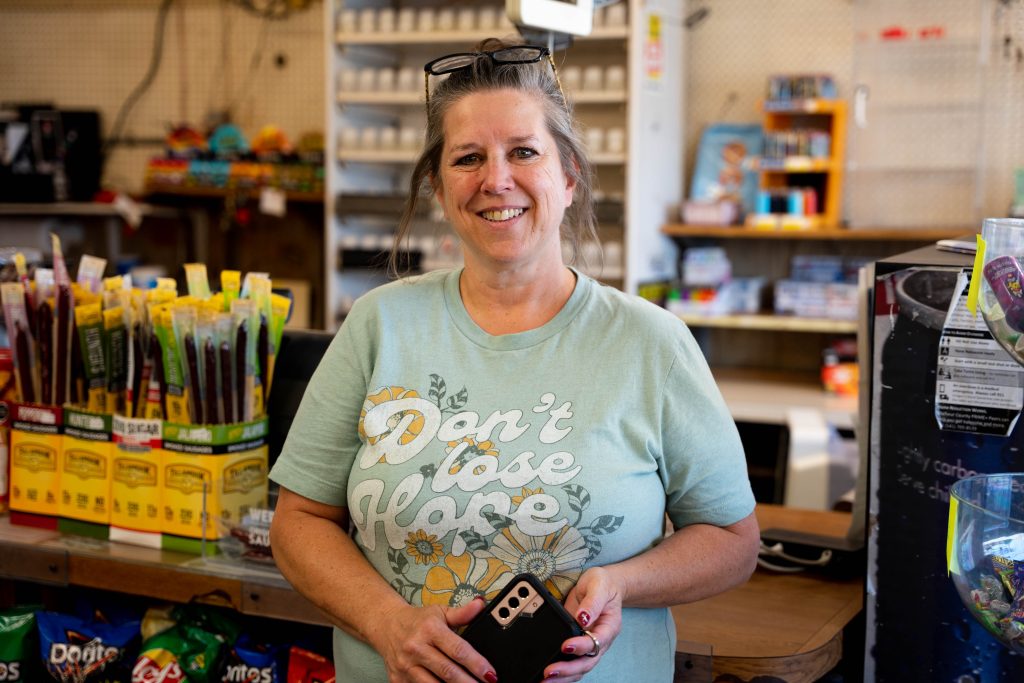
“It’s just what a mom and pop is, and that’s community oriented,” said Aguiar. “It really isn’t a bad neighborhood. It’s just an old neighborhood.”
For Aguiar, food was the easiest way to give. She started a free meal program on Saturdays with a local church, coordinated the weekly needle exchange, and, after her husband died unexpectedly in 2010, began cooking and serving free meals on Thanksgiving.
“It doesn’t matter whether someone is poor, or whether they’re on drugs, or whether they’re an alcoholic,” said Aguiar. “People are people, and they need to be treated like they’re people.”
For 11 years she ran the store with help of friends and family, and employees who would become a family to her.
“Even when I go in now, it still holds that nostalgia value for me,” said Aguiar. “My mom lived down the road from Mallard’s. She came when she was a little girl.”
Many long-time customers have been going to the store for as long as they can remember. Some once resided in the mobile home park, or had parents who did. Others come from Boise or even after moving away.
In a town where 45.5% of residents are Hispanic – three times the state average – Mallard’s also serves its share of non-English speaking patrons, who would come in for a drink and for help buying bus tickets or setting up cell phones.
For the small space the store occupies, it packs in a lot of inventory. A hot foods menu, cooked fresh in-store, features $2 burritos and a stack of Mallard’s specialty JoJos – thick-cut, deep fried potato wedges – for just a dollar.
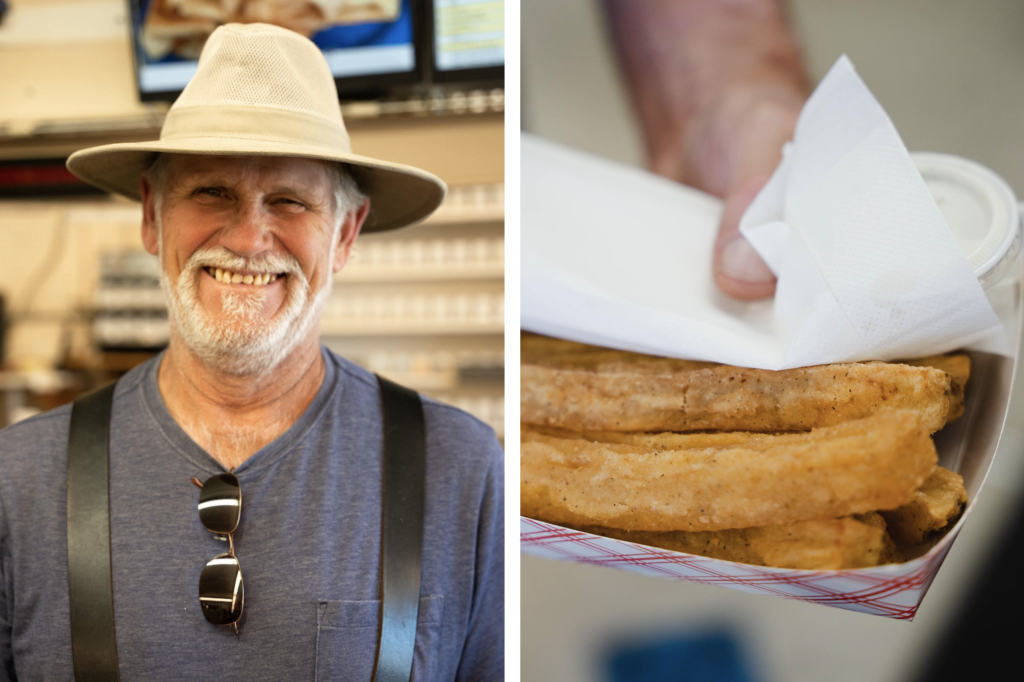
Customers in search of cucumber-shaped lollipops and cowboy hats, or just a friendly face and conversation, are also in luck.
“You know your customers by name, and they know yours,” said Aguiar. “If you want to know this place, if you want to know the people here – rather than avoiding it, make a point to come in on a regular basis.”
“Learning about humanity by being in the middle of it has been a huge experience for me, and one that I’m very, very grateful for,” said Aguiar.
It would be nearly two decades since she started before she decided to leave the business. Some offered to buy the property and tear down the store, but Aguiar was intent on waiting for the right people to carry on Mallard’s.
In 2018, the Blickfeldts had stopped by Mallard’s while looking for a place to park the food truck they operated. It wasn’t their intention to buy the store. Still, they remembered how it reminded them of mom-and-pop shops they had grown up with in their Idaho hometowns.
It would be another five years before everything fell into place.
“My family’s always wanted to own a little mom-and-pop shop,” said Blickfeldt. “We were fulfilling dreams for them, and dreams for us. These places are important, and there’s not very many anymore.”
“I hope that we will be here for many, many, many years to come. That this will always be a safe place for all kinds of kinds to come in, do their shopping, and get their sodas and their food and know that it will be a good, pleasant experience,” she said.
News tip? Contact reporter Cynthia Liu at [email protected]
EXCELLENCE IN JOURNALISM – Available for $7.50 a month. Subscribe to the digital service of the Enterprise and get the very best in local journalism. We report with care, attention to accuracy, and an unwavering devotion to fairness. Get the kind of news you’ve been looking for – day in and day out from the Enterprise.

